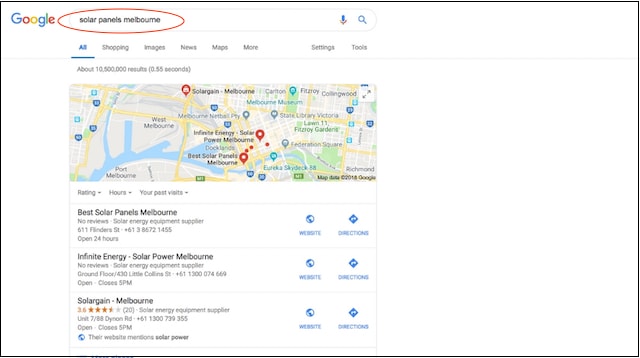You started your small business because it’s what you know and you’re good at. So when someone tells you that you should be blogging or doing content marketing, the easiest thing to do is to respond with “I don’t blog, I’m a small business owner. I don’t have the time.”
The reluctance to blog that many small business owners feel is as strong as the fear of public speaking that many people have.
But I want to frame content marketing differently for you. The fact that you are a small business is the exactly reason why you should be producing content. Big businesses have big budgets to spend on advertising. You will need to find another way to get noticed.
Related: Start a WordPress blog this weekend
4 reasons to start content marketing
Everybody’s buzzing about content marketing and there’s a very good reason — four in fact.
-
It gives customers what they want.
-
It nurtures an audience.
-
It improves your search ranking.
-
It costs less than ads and generates more leads.
If you’re ready to break through the clutter and gain customers by serving them, read on.
So what is content marketing?

Image: Shoreline Media Marketing Solutions
In the book Content Marketing in a Week, author Jane Heaton quotes the Content Marketing Institute's Robert Rose definition of content marketing:
“Traditional marketing and advertising is telling the world you’re a rock star. Content marketing is showing the world that you are one.”
How you choose to do this is up to you — or better still, up to your target audience. If they prefer to read, then you should blog. But if they’re hungry for video, then produce video. The goal is to engage your readers and get them to interact with you.
What content marketing isn’t
Sometimes, I find that it’s easier to describe what content marketing is not rather than what it is. Content marketing is not:
- Native advertising where you pay for posts or advertorials.
- When you write a post on your blog that’s focused on selling.
“If you sell something, you can make a customer today. If you help someone, you can create a customer for life.”
This quote is from Convince and Convert’s Jay Baer. It’s one worth remembering because too many small businesses are only focused on selling.
Editor’s note: The easiest way to start a WordPress blog is with Managed WordPress. GoDaddy takes care of all the tech details, so you can create the blog posts your customers are looking for.
Four reasons you should be doing content marketing
Blogging or producing content such as videos, infographics, social posts, industry surveys, etc. can be a big hurdle for a lot of small business owners. First, you need to find the time, then figure out what to write/produce, then get the content formatted and published to your site.
But it doesn’t end there. The final step is crucial and it’s one that many content producers undervalue: promoting the content you’ve just published.
But let’s take a look at some main reasons for you to take the plunge into content marketing.
1. It gives customers what they want

Open up a few tabs in your browser and load each of your key competitors’ websites. Look at the first message you have on your home page and then compare it to the first message on their home pages.
- Is your message significantly unique?
- Is it radically more compelling?
Compare your other key pages with those of your competitors and ask the same questions.
Don’t be surprised if your content looks about the same as theirs.
Now put yourself in a prospective customer’s mind. Someone who’s just done a search in Google and is hopping between the key search results. Would ‘how to’ posts and videos add to their experience and help them find what they’re looking for?
The answer is probably yes and that means you have an opportunity.
Don’t be like your competitors by just telling them how good you are. Be helpful as well. Show them how you can offer value.
2. It nurtures an audience
Without a blog or content marketing strategy, your website is probably only useful to a potential customer who is ready to contact you. But it’s important to understand that consumer behaviour has changed.
People like to research online before they get in contact.
So you can bank on the fact that if you create a compelling experience for them, they’ll come back to you when they’re ready. Or you can be the one option that helps them make all of their decisions on the spot!
One more thing: Building an email list for marketing use is a key tactic in growing your audience. In fact, email is one of the most cost-effective marketing tools around.
But if you don’t produce educational or helpful content, then what will compel your audience to give you their email addresses?
3. It improves your search ranking
Want people to find you in Google? Is that how you plan on driving traffic and generating new leads? If so, you’re on the right track.
Let me throw up a hypothetical case study. Let’s assume you’re a solar panel installer in Melbourne. You have the traditional website, consisting of a Home, About, Sales and Contact pages. You have dozens of competitors with the same site structure, saying pretty much the same thing. So, getting your site to show up when someone searches ‘solar panels Melbourne’ can be tough.
There are probably hundreds of people who search for ‘solar panels Melbourne’ every day.

Imagine them coming across your blog post that addresses that very topic in depth. They’ll come across your business first, because all the other installers couldn’t be bothered to blog. By being one of the few who is producing helpful how-to content on topics people are searching for, Google will send those leads to you.
Related: Google SEO — make the most popular search engine work for you
4. It costs less than ads and generates more leads
The Content Marketing Institute cites the following stat from DemandMetric:
“Content marketing generates over three times as many leads as outbound marketing and costs 62 percent less.”
This is exactly why you need to be using it to promote your small business. You simply don’t have the time to be having one-on-one conversations with every single potential customer. Employing staff to do that job costs money too.
So, produce content instead. Even if it takes you five hours to write, publish and promote a piece of content, think about how few new customers it needs to attract to be profitable.
Keep in mind that one article (on a popular subject, say) could continue to drive traffic to your website for the next five years with no ongoing effort required. That’s worth investing in!
Pro tip: Your list of topics should start with customers’ top questions. Whether you answer them in separate blog posts, videos or a sidebar on your home page is up to you. Then post messages on your social media pages linking back to your answers. (See what you just did there? Drew people in with content.)
The bottom line
You don’t have to be the world’s best storyteller to be successful with content marketing. You just need to get the knowledge that’s in your head onto your web page or blog. By sharing what you know, you’ll not only help those who read it, you’ll help your business. Win-win, right?






